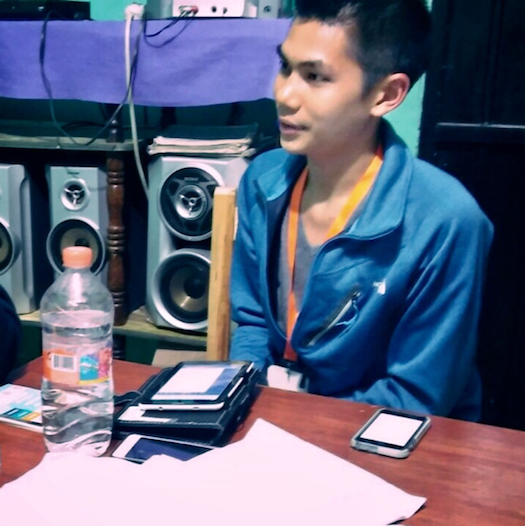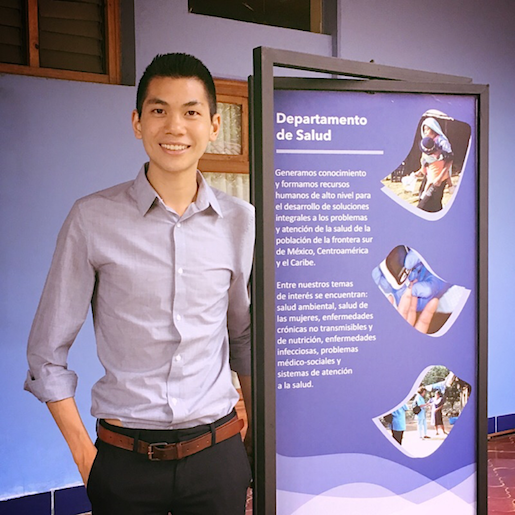Student Wins Grant for Nutrition Research in Mexico

Posted in News Story
In May 2017, the Georgetown Graduate Student Government awarded a competitive grant to Mark Lee (MSGH ’17) in support of his nutrition research in Chiapas, Mexico. Lee’s field research served as the required capstone for his M.Sc. in Global Health degree.
What is a GradGov grant? How did you qualify?
The GradGov Research Project Award (GRPA) is a research award available to master’s and doctoral students at Georgetown. It is administered by the Graduate Student Government (GradGov) and the Graduate School of Arts and Sciences, specifically to support research costs associated with completing a dissertation or thesis.
I applied for the GRPA because the Master of Science in Global Health program’s requirement to conduct health research for 10 to 14 weeks abroad is a uniquely valuable experience. Receiving the GRPA enabled me to expand my scope of work by supporting translation costs associated with data collection, analysis and presentation in professional working Spanish.
Tell me about your research. With whom did you work and what were your findings?
This summer I worked in the Department of Health at El Colegio de la Frontera Sur (ECOSUR), a public scientific research center in Chiapas, Mexico’s southernmost state. Presently, Chiapas is experiencing the “Double Burden of Malnutrition”: the population faces the dual stresses of chronic undernutrition – especially in children under five years of age – alongside quickly rising rates of overweight and obesity in adults. Against this shifting landscape, my research aimed to explore whether adolescents in an urban zone of Chiapas who were exposed to undernutrition in utero and in early childhood had a greater tendency to present temperamental qualities that may increase their risk to becoming overweight and obese in adulthood.
Based on a subsection of a cohort of adolescents assembled as part of the larger ECOSUR Bajo Peso al Nacer study, I found an association between children who were born with low weight in 2003 (<2,500 grams) and depressive mood in early adolescence in 2017. These findings suggest that continued work in this area would be quite useful, especially in a larger sample of children. A more complete view of the socio-emotional penalties that follow an undernourished child into later life could be an important step to addressing the drivers of overweight and obesity in Mexico.
How would you rate your field experience?
It was a wonderful opportunity to conduct public health research in-country with the ECOSUR Department of Health. I especially enjoyed accompanying the study team into the field, and getting to know the children and families who are contributing their time by participating in the nutrition cohort study. From them, I learned a great deal about the local factors informing food availability and food choices in Chiapas and southern Mexico.
What’s next for you?
Next, I will be pursuing a nursing degree at the Nell Hodgson Woodruff School of Nursing at Emory University in Atlanta, Georgia. I am excited by the possibility of serving in global health from both clinical and programmatic roles. This project with Georgetown and ECOSUR has been an excellent opportunity to see the work of addressing health disparities from both the patient and population levels.
Is further research in your future?
I am sure that I will stay connected to research. Research is central to the success of every intervention in global health. I am especially interested in following the lives of the children participating in the Bajo Peso al Nacer nutrition cohort study at ECOSUR, as field visits continue this season and into the future.

